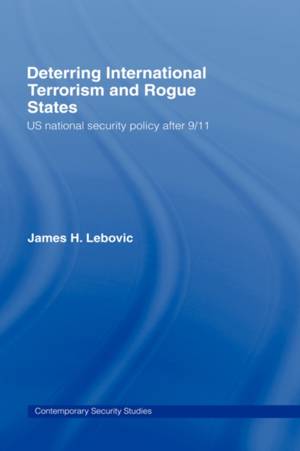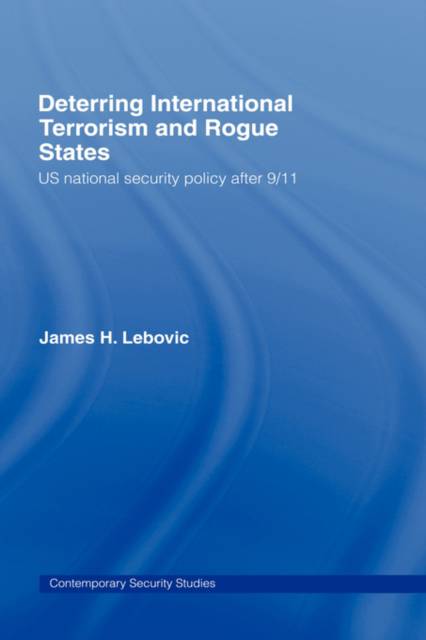
- Retrait gratuit dans votre magasin Club
- 7.000.000 titres dans notre catalogue
- Payer en toute sécurité
- Toujours un magasin près de chez vous
- Retrait gratuit dans votre magasin Club
- 7.000.0000 titres dans notre catalogue
- Payer en toute sécurité
- Toujours un magasin près de chez vous
Deterring International Terrorism and Rogue States
Us National Security Policy After 9/11
James H LebovicDescription
This new study challenges the widely held view that many current US adversaries cannot be deterred, maintaining that deterrence is not a relic of the Cold War period and that it should shape US policies toward so-called 'rogue states' and terror groups.
James Lebovic argues that deterrence principles continue to apply, and focuses upon the 'three pillars' of the Bush administration's national security policy:
- missile defence, which preoccupied the administration until September 11, 2001
- pre-emption, which became the US focus with the September 11 attacks and US success in overthrowing the Taliban regime in Afghanistan
- homeland security, which the administration has portrayed as more a natural response to threat than an aspect of policy that must be reconciled with the other pillars.
Deterring International Terrorism and Rogue States asserts that bad offences and defences have been endemic to the current US policy approach, leading US policy makers to pursue policies that require them to do everything without adequate concern for resource trade-offs, overreach, and unintended consequences.
This book will be of great interest to students of US foreign policy, national and international security, terrorism and international relations in general.
Spécifications
Parties prenantes
- Auteur(s) :
- Editeur:
Contenu
- Nombre de pages :
- 240
- Langue:
- Anglais
- Collection :
Caractéristiques
- EAN:
- 9780415771436
- Date de parution :
- 24-11-06
- Format:
- Livre relié
- Format numérique:
- Ongenaaid / garenloos gebonden
- Dimensions :
- 239 mm x 180 mm
- Poids :
- 494 g

Les avis
Nous publions uniquement les avis qui respectent les conditions requises. Consultez nos conditions pour les avis.






